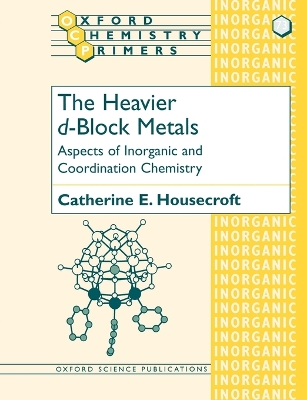This book addresses the chemistry of the second and third row d-block metals, assuming a knowledge of the chemistry of the first row metals.
Chapter 1 looks at the metals and summarizes occurrence, physical properties and uses.
Chapter 2 considers periodic trends in properties.
Chapter 3 considers aqueous solution chemistry, species present (with comparisons of the first row metal ions) and redox properties.
Chapter 4 surveys structure: the range of coordination numbers shown by second and third row metals is often a topic for discussion in University courses.
Chapter 5 looks at electronic spectra and magnetic properties, making comparisons with the first row the main objective of the chapter. Detailed mathematical treatments are not given.
Chapter 6 considers metal-metal bonding, and the classes of compound that contain triple and quadruple bonds; the role of bridging ligands is introduced.
Chapter 7 looks at selected clusters with a pi donar ligands (e.g. metal halo species) in which metal-metal bonding is important.
Chapter 8 introduces the area of polyoxometallates, closing with a short discussion of the wide range of applications.
The book contains many references to encourage wider reading by the student; in addition to textbooks of relevance, the author has included many recent literature citations, and a section called "Metals in Action" which gives citations which show the heavier metals at work in, for example, catalytic converters and molecular wires.
- ISBN10 019850103X
- ISBN13 9780198501039
- Publish Date 4 February 1999
- Publish Status Active
- Publish Country GB
- Imprint Oxford University Press
- Format Paperback
- Pages 96
- Language English
